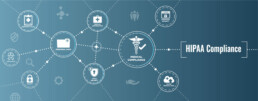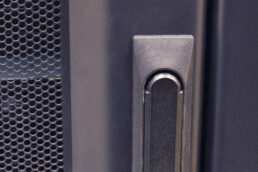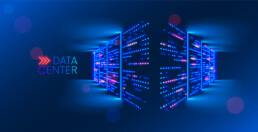Unlocking Zero Trust Compliance with Digitus Biometrics
In today's rapidly evolving digital landscape, trust is a precious commodity. With the Zero Trust model gaining prominence as a cybersecurity imperative, organizations are seeking partners who can help them navigate this complex terrain. At Digitus Biometrics, we are your trusted ally in the journey toward achieving Zero Trust compliance. Discover why we stand at the forefront of Zero Trust solutions.
Why Choose Digitus Biometrics for Zero Trust Compliance?
At Digitus Biometrics, we understand that the Zero Trust model is not just a security framework; it's a strategic shift in how organizations protect their digital assets. Here's why we are your ideal partner:
- Expertise in Biometric Authentication:
Our deep expertise in biometrics sets us apart. Biometric authentication plays a crucial role in Zero Trust by ensuring the highest level of identity verification. With our cutting-edge biometric solutions, you can trust that only authorized users gain access to your critical systems and data.
- Customized Zero Trust Solutions:
No two organizations are identical, and neither are their security needs. We take a tailored approach to Zero Trust compliance. Our team works closely with you to design and implement a Zero Trust strategy that aligns perfectly with your unique requirements and business goals.
- Seamless Integration:
Digitus Biometrics understands the importance of integrating Zero Trust seamlessly into your existing IT infrastructure. Our solutions are designed to work harmoniously with your systems, minimizing disruption and maximizing security.
- Continuous Monitoring and Adaptation:
Zero Trust isn't a one-time implementation; it's a dynamic process. We provide continuous monitoring and adaptive security solutions to ensure that your organization remains protected against emerging threats.
- Compliance Assurance:
Zero Trust compliance often goes hand in hand with regulatory requirements. Digitus Biometrics helps you meet compliance mandates while maintaining the highest levels of security.
Unlock a Secure Future with Digitus Biometrics
As you embark on the journey towards Zero Trust compliance, Digitus Biometrics is your trusted partner every step of the way. Our commitment to cutting-edge biometrics, customized solutions, and unwavering security sets us apart in the industry.
Ready to strengthen your organization's security posture and achieve Zero Trust compliance? Contact us today to schedule a consultation. Together, we'll build a secure future in an interconnected world.
Trust Digitus Biometrics - Your Pathway to Zero Trust Compliance!
Importance of Data Center Aisle Containment
Importance of Data Center Aisle Containment
The introduction of data center aisle containment has had a significant impact on the way in which these facilities are designed. This is because data center aisle containment delivers a host of impressive benefits, to both the facility owners and the planet.
An Overview of Data Center Aisle Containment
Aisle containment is a system that separates the hot air being emitted by hardware from the cooled air needed to maintain the functionality of this equipment. By avoiding the risk of air of very different temperatures being mixed, the data center can enjoy a consistent and predictable cool temperature, which helps to keep IT equipment from overheating. This, in turn, ensures greater uptime for hardware and a longer usable life for this expensive equipment.
Helping To Save Energy
Part of good data center management is keeping an eye on costs, and optimizing the use of all resources, from finances and staff to hardware. This makes data center aisle containment a vital part of maintaining cost and energy efficiency.
By keeping aisles contained, it is possible to significantly reduce the cost of keeping a data center at the required cool temperature, and also provides benefits to the environment, as containment reduces the data center's carbon footprint. This means that opting for aisle containment is an excellent way to meet sustainability goals, with quantifiable decreases in carbon emissions once it is implemented.
Types Of Data Center Aisle Containment
Data center aisle containment comes in two main types: hot aisle containment and cold aisle containment. The choice of which type of aisle containment to implement will depend on the overall design of the data center, as factors such as the layout and size of the space can have an impact on the best approach.
Hot aisle containment is a system in which hot air, which has been exhausted from IT hardware equipment, is guided back to the facility's air conditioning return without it meeting the cool air intake for this machinery. This is achieved by using a physical barrier for directing the hot exhaust air,together with doors at the end of the aisle and an arrangement of baffles and ductwork. As the hot air tends to rise, drop ceiling plenums are often chosen as a means to direct the exhaust air back to the AC system.
Cold air aisle containment fully encloses an aisle in order to ensure that the hardware within will receive a consistent and uniform supply of air at the correct temperature level. This system relies on air flow controls which are configured to meet the specifications of each aisle, thereby optimising the efficiency of the air delivery and preventing the risk of any hot spots of air. In addition to doors at the end of the aisle, cold air containment enclosures will also feature a roof to ensure the air supply is maintained.
What is Zero Trust Security Compliance?
What is Zero Trust Security Compliance?
It's never been more important to ensure that data security is being maintained, as criminals are evolving ever more sophisticated means of getting their hands on valuable personal information. That's why businesses and organizations are obliged to meet stringent compliance requirements or face hefty fines if they fail to follow the regulations.
An Essential For Data Centers
Of course, given the nature of many of the files being stored there, it's particularly important to uphold the most rigorous security protocols in data centers. Being able to prove that sensitive personal data is being stored and managed appropriately and in a way that minimizes the risk of a breach is essential for meeting compliance regulations for PCI-DSS, HIPAA, FISMA and NERC CIP.
A key component of ensuring that data is secure is to manage just who has access to it. This can mean physical controls (such as aisle, cage and man trap locks) being put in place, as well as password protection for online systems and networks.
An Effective Protocol
This is where a Zero Trust Security protocol can make for the surest way of protecting your own and your clients' sensitive personal information. Zero Trust is essentially a framework that is founded on the belief that there is no end to the organizational network: it extends beyond on-site networks and physical locations into the cloud. This means that each and every person who attempts to access any files must prove that they are authorized to do so, each and every time they need to work with this data. This may seem heavy-handed, but it prevents allowing hackers into a seemingly innocuous area of a network, from where "back doors" to sensitive files may be found.
Achieving this authorization means having a robust means of authentication in place. Good options use technology that cannot easily be forged, such as biometric fingerprint sensors built into cabinet door locks. Multi-factor authentication for accessing computer files is also a must, using the principles of producing a combination of "something you have" (such as a dongle), "something you know" (a password or PIN), and "something you are" (biometric markers such as facial recognition or fingerprint). By constantly reviewing who has access to sensitive data, organizations can optimize their protection against hackers.
Meeting Compliance With Zero Trust Principles
The principles of Zero Trust make it an effective framework for achieving vital compliance. By making authentication an essential step in working with any and all files or hardware components such as servers, it is easy to track who has been accessing what at any given time.
And using Zero Trust need not have an impact on productivity or efficiency. Using biometric identifiers to open doors or cabinets is quick and convenient for staff. Simply put, Zero Trust removes the guesswork and provides reassurance that all compliance regulations (such as PCI-DSS, HIPAA,FISMA and NERC CIP ) are continually being met.
Best in class data center solutions
When it comes to running an effective data center, having the best in class equipment and other solutions can go a long way in ensuring that your operation stands head and shoulders above the competition. Our selection of data center solutions provide the high standards and performance required by the best data centers.
Cabinet Door Access Control
Ensuring total control over just who can gain entry to your cabinets and other areas is essential for security, as well as ensuring that HIPAA, GDPR and other compliance regulations are met. Our range of cabinet door access control solutions has been refined over the years to deliver the ultimate protection for your data center's cabinets. With integrated biometric technology, this range is ideal for ensuring access is granted only to specific authorized personnel. Solutions available include the dbBus Multi Cabinet Access Controller and the dbSentry Single Cabinet Controller, to suit a variety of enclosure spaces.
Cage, Aisle and Door Access Control
This selection of security solutions from Digitus enables you to create bespoke data center security. Opt for a solution that works to optimally secure your data center doors, man traps, or cages, or create security configurations for your ideal aisle containment. The best in class cage, aisle, and door access control solutions from Digitus includes physical access controls managed from the DAS-SQL software platform, which are designed to integrate with our other cabinet access control solutions. Opt for your preferred entry authentication method, such as PIN, RFID, or biometric fingerprint approaches, or create a hot and cold aisle secure entry system with Digitus dbAisleGuard.
Server Cabinet Smart Handles
Our selection of server cabinet smart handles come with a choice of single, dual, or three factor authentication, allowing you to tailor your level of security according to your data center's requirements. The authentication method can be based on PIN, RFID, or biometric data (a fingerprint), allowing you to ensure security and uphold compliance regulations effortlessly. Our advanced server cabinet smart handles are designed to work seamlessly with the Digitus Control Solution or other building access systems, such as Lenel/S2's OnGuard. This gives you the peace of mind that comes from knowing that only the right people can access your server cabinets.
Server Cabinet Adaptor Kits
Our range of server cabinet adaptor kits is a highly versatile addition to the Digitus range of data center access control solutions. Ideal for all server cabinet doors not utilizing swing handles, our best in class server cabinet adaptor kits work with doors by all the leading cabinet manufacturers, such as Dell, Belden, Eaton, IBM, Hewlett Packard Enterprise, and many more. Our solutions make use of the door's existing mounts to convert it into an electronic door, ready to accommodate an advanced access control solution from Digitus.
The Importance of Data Center HIPAA Compliance
With the surge in organizations embracing cloud computing solutions, demand on data centers has never been greater. Many of the organizations now migrating to online platforms are operating in the healthcare sector, which means that the need to ensure that HIPAA compliance is upheld should not be overlooked. Ensuring compliance is a crucial element in successful data center management, and, indeed, failure to meet the requirements can prove disastrous.
HIPAA Compliance For Data Centers
Short for Health Insurance Portability and Accountability Act (which was brought into law in the US in 1966), HIPAA regulations are designed to limit the usage of protected health information (also known as PHI) by a variety of parties, including doctors and other healthcare professionals, and medical insurance providers. This means that any data which could potentially identify an individual, such as medical conditions or history, financial details such as billing information, and any medical test results, must be held and managed in a way that ensures privacy, and security, and upholds the HIPAA breach notification rule.
The HIPAA compliance rules are intended to protect individuals, and in many ways, this compliance law is similar to the European GDPR. GDPR is perhaps more stringent in its requirements, as it requires explicit permissions for sharing personal data even for the purposes of patient care (which is not a requirement of HIPAA), while HIPAA does not afford patients the "right to be forgotten" as seen under GDPR. Furthermore, in the event of a GDPR data breach, there is no lower threshold for reporting under the regulations, whereas HIPAA requires only that breaches that affect more than 500 people should trigger mandatory notifications.
Why It Matters
Failing to meet the compliance regulations can result in severe fines, or even legal repercussions, as enforced by the federal government. This is in addition to any potential reputational damage for any data center seen to have facilitated a data breach. If a data center is classed as a business associate of any organization bound by HIPAA regulations, it is also required to meet compliance.
Growth industries such as telehealth mean that data centers must be aware of the HIPAA compliance requirements if they are to avoid the risk of fines or other action. And those data centers that can demonstrate a commitment to upholding HIPAA compliance will also benefit, as this is a clear advantage for healthcare firms looking to move into off-premises storage and processing.
The best indicator of HIPAA compliance for data centers is HROC (HIPAA Report On Compliance) documentation, but as a minimum, achieving HIPAA compliance will include having a documented disaster recovery plan, protection for all hardware and network assets (such as RFI and surveillance technologies), and IP separation for healthcare organizations. This is in addition to standard compliance steps, such as commitment to ongoing staff training and regular security audits and risk assessments.
How to Choose the Right Authentication for Your Server Cabinet Smart Handles
In today's technology-driven world, data security is of paramount importance. For businesses and organizations managing critical IT infrastructure, ensuring the protection of sensitive information is a top priority. One essential aspect of safeguarding data is choosing the right authentication for server cabinet smart handles. These solutions offer advanced security features in single, dual or three factor such as pin, RFID and biometric authentication. Here's a comprehensive guide on how to select the most suitable authentication method for your server cabinet smart handles:
- Security Requirements: Start by assessing your security needs. Consider the sensitivity of the data stored in the server cabinets and the potential consequences of unauthorized access. For highly sensitive information, opt for multi-factor authentication methods like combining RFID and biometrics, which significantly strengthens the access control.
- RFID Technology: Radio Frequency Identification (RFID) technology allows for contactless access control. When choosing RFID-based smart handles, ensure they use robust encryption methods to prevent hacking attempts. Look for handles with customizable access privileges to grant specific permissions to authorized personnel only.
- Biometric Authentication: Biometrics, such as fingerprint recognition, provide a high level of security as they are unique to each individual. Biometric smart handles are effective in preventing unauthorized access, but they may be more expensive than RFID-only options. Evaluate whether the added security justifies the cost for your specific use case.
- User-Friendly Experience: While security is crucial, user experience should not be overlooked. The authentication process should be intuitive and efficient for authorized personnel. Complicated or time-consuming authentication methods might lead to frustration and potential security risks if employees resort to sharing access credentials.
- Integration with Existing Systems: Ensure that the chosen authentication method seamlessly integrates with your existing access control and monitoring systems. Compatibility issues can lead to additional expenses and inefficiencies in managing access to server cabinets. Digitus' highly secure and flexible API helps to simplify and greatly speed up integration with other technology platforms.
- Scalability and Future-Proofing: Consider your organization's growth and future needs. Choose authentication methods that are scalable and easily adaptable to expanding server cabinet networks. Future-proofing your security solutions will save you time and resources in the long run.
- Compliance Requirements: If your organization operates in a regulated industry, check whether the authentication method meets compliance standards like HIPAA. Compliance is essential for avoiding penalties and protecting your reputation.
In conclusion, selecting the right authentication method for server cabinet smart handles is a critical decision that directly impacts data security. By considering the above points, you can make an informed choice that aligns with your organization's needs. Investing in robust authentication measures will provide peace of mind and ensure the protection of your valuable data assets.
Contact us for more information about our server cabinet smart handles.
How Physical Access Controls Help with Regulatory Compliance
Meeting regulatory compliance isn't just essential because it ensures that your business avoids hefty fines, potential legal action and the risk of irrecoverable reputational damage; it's there to make sure that organizations take every possible step to protect sensitive information and areas from being accessed by criminals.
A More Sophisticated Threat Landscape
The challenge of staying one step ahead of hackers online has never been greater. Thanks to the incredible powers of cloud computing, together with AI technology, cyber criminals can launch ever more sophisticated attacks, and in a far higher volume, too. This means that the onus is on organizations to take the right actions to prevent a potentially disastrous data breach.
The approaches that were once the norm are no longer fit for purpose in today's threat landscape. While maintaining a firewall and employing anti-virus software are still essential steps in building a robust defense, there is far more that needs to be undertaken if any business hopes to stay safe.
And, of course, for many organizations, meeting regulatory compliance means securing other areas too, both in terms of maintaining a safe and healthy workplace, and in ensuring that only the right people are present in certain areas of the premises. The advances in tech have also meant that keeping physical areas secure has become more challenging, with hackers now gaining capabilities in disabling access monitoring equipment such as cameras.
Look At Access Controls
Physical access controls are the most robust way to ensure that only those with the right permissions will be able to access your organization's most sensitive areas. This helps to reduce the risk of not only criminal activity, but also the chance of accidents caused by the presence of untrained personnel entering areas that are not suitable for them. Implementing robust physical access controls can be achieved through a blend of tech components, some of which are proactive, such as biometric entry cards, and others that are reactive, such as sensors that detect movement or body heat signatures in areas that shouldn't be entered.
An entry token such as a card that features integrated biometric technology, can be an excellent way to verify the identity of anyone looking to gain entry to restricted areas. Unlike passwords or PINs, this biometric authentication provides highly secure compliance as this data cannot be provided by anyone other than the authorized individual. It also serves to ensure that operations run smoothly throughout the business, as access can be quickly and conveniently granted to the right members of the team. A simple fingerprint or facial scan, and you're good to go.
Improve Your Control Solutions with Server Cabinet Smart Handles
Server cabinet smart handles offer a granular level of protection for data centers that take security seriously. Our smart handles integrate with our control solution or a building access system to provide individual server-level monitoring and authentication. This goes one step further than door locks and secures each individual cabinet with automated integration and accurate monitoring.
Digitus smart handles come with the option of three different authentication types, which can be combined for up to three factor authentication.
RFID cabinet handles
Our RFID models offer a range of compatibility perfect for companies that use a mixture of card technologies. Slot combined compatibility integrates seamlessly into your set up and you can use them to smoothly transition to a higher security model.
Biometric cabinet handles
Our biometric fingerprint locks can be programmed to recognize specific fingerprints, either by storing them on board or via RFID card.
PIN cabinet handles
Our PIN locks can be used alone for single factor authentication or together with cards for dual factor authentication.
Authentication factors
Our single factor authentication locks use one of the above methods of verification to allow entry to the server cabinet. Dual factor authentication locks use a combination of two different authentication methods for additional security. Three factor authentication uses all three methods and is considered the most secure. Not all applications require all three, so it's worth considering the specific security requirements for each use case.
How do smart handles improve control solutions?
Access control is fully monitored and automated. It creates a reliable audit trail of access and authentication right down to the server cabinet level. Our handles integrate with our own or other access systems for a smooth and seamless integration that effortlessly meets regulatory requirements. The choice of authentication types and factors means that solutions can be tailored to the level of security required. Smart handles not only automate authentication, but they also enable you to see who has accessed a specific server cabinet and when, anywhere across your organization, even when it spans several sites.
Our smart handles are scalable - use them anywhere across the globe and integrate them with an access control system. The user-friendly installation and easy integration makes them a solid choice for a security upgrade or additional access control for sensitive servers. They slot easily into most existing systems meaning they can be used as an expansion to your security rather than an overhaul.
We offer both multi cabinet and single cabinet access technology depending on whether you need to secure a group of cabinets or one that is isolated from the main data center. Both options are compatible with the available smart handles for a complete tailored solution.
Why Digitus Access Solutions are Government Trusted
With a matter as important as data security, you need to know that your provider is reliable and their products are robust. We're confident in our access solutions, but you don't have to take our word for it. Digitus Access Solutions are used in a number of data centers owned by the Canadian and US governments, in addition to State sites and DoD sites. Our products meet and exceed even the highest requirements making them a solid choice for securing and monitoring data center access.
Why Governments Use Our Products
Digitus offer end-to-end data center security solutions for access control and accountability. Our unique software can be used to manage cabinet locks and cage and aisle door controls. It can also be integrated with building access systems of Microsoft Active Directory. This comprehensive and flexible offering is part of the reason we're trusted to provide solutions for high security environments. It's easy to integrate and possible to secure servers at an individual cabinet level.
What we do
The Digitus Access Solution provides easy and accurate accountability. Indisputable audit trails show who accessed which doors and when. It is a highly scalable system and can cover multiple locations across the globe. We offer far more than control of data room entry, with protection available for each individual server cabinet. Server cabinet controls can be built with a range of different authentication options to accommodate preferences and offer the level of security needed. Single to three factor authentication is available, together with RFID, biometric or PIN security.
Regulatory assistance
Digitus Access Solutions provide a simple way to meet regulatory requirements such as those in PCI-DSS, HIPAA, FISMA and NERC CIP. Our products help meet a number of specific points in these regulations, making documentation and compliance easier to complete. Please check the regulatory compliance section on our website for more details as to how Digitus Access Solutions can help your business meet specific regulatory requirements.
We're up to date
Our products are a user friendly and comprehensive solution that follows best practices. Our ecosystem is continually being developed to keep it up to date and the best on the market. There's sufficient flexibility in our system to tailor solutions to specific requirements too. Digitus Access Solutions deliver top of the range, tailored solutions that can meet your specific business goals.
Summary
These are just a few of the reasons our access solutions are considered among the best in the industry and trusted in security critical, high stakes environments. Data security is a serious consideration and one that requires reliable, robust and thorough solutions. Our products are trusted to secure some of the largest healthcare organizations in the country, in addition to a number of government locations.







